USA Insurance Companies with the Best Diversity and Inclusion Programs | 5-Star Diversity, Equity, a
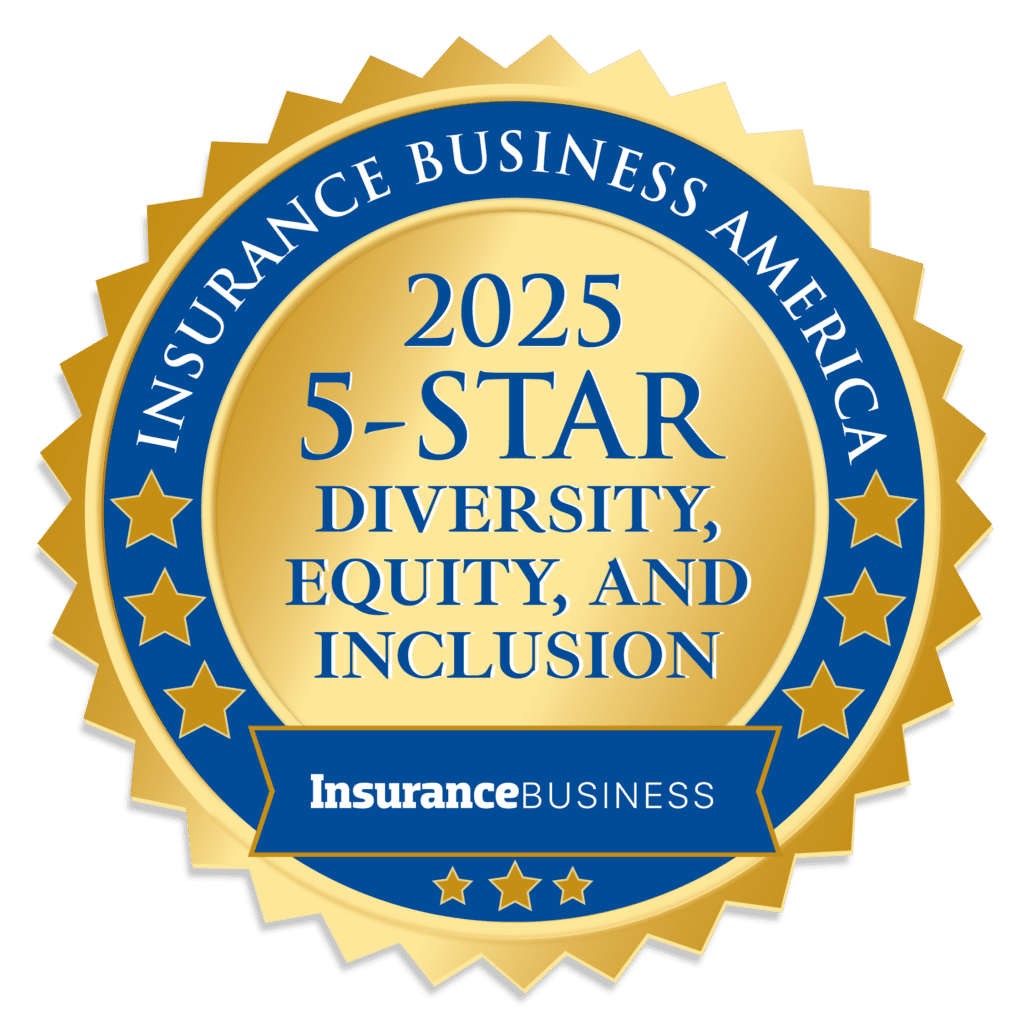
Jump to winners | Jump to methodology
One for all, all for one
“If you back off from your DE&I commitment right now, you’re sending a very strong message to your employee base that you’re only there to support when it’s convenient to do so,” says Aaisha Hamid, vice president of diversity, equity, and inclusion at Alliant Insurance Services.
This sentiment is echoed by Jennifer Brown, a globally recognized DE&I thought leader who has presented to corporations including Google, Sony, Toyota, and LinkedIn.
She believes companies that don’t have a robust DE&I program are forgoing a higher standard of output. This is underlined by millennials projected to make up 75 percent of the global workforce by 2025.
“You will lose the hearts and minds of younger workers because they are coming in with the expectation that the company cares about it, that it understands the value of it, and therefore they feel valued,” Brown explains.
“They are the generation that wants to be seen and heard. If companies don’t get that, then you’ve got people working in place, but not bringing their discretionary effort. You get that extra effort when people feel a true sense of belonging and feel empowered and that comes from being seen, heard, valued, respected, and included.”
How the best DE&I programs bring
positive results
Insurance Business America’s 5-Star DE&I winners of 2025 are recognized for the effectiveness of their programs. Those on the prestigious list were named after IBA surveyed thousands of employees across the sector, with 55 percent of respondents from a diverse or underrepresented group.
These celebrated firms have responded to the expectations of those in the workforce.
Proactive DE&I policies not only increase staff engagement but also boost company value and stability, according to Culture Amp’s Workplace DE&I Report 2024, which states:
Employees who strongly believe the company values diversity are 84 percent engaged, while those who strongly disagree are 20 percent engaged.
Companies that value diversity have a 6.8 percent higher stock price than those that don’t.
Employees who strongly believe the organization doesn’t value diversity are more than three times more likely to leave in a 12-month period.
Hays’ Diversity, Equity and Inclusion Report 2024 also underlined how vital the issue is when attracting the best young professionals: “Younger talent is more likely to search for DE&I policies than their older counterparts. 70 percent of under 30s always look for this information when researching roles, compared to 52 percent of over 50s.”
Similarly, 71 percent of respondents believe positive employee well-being is linked to DE&I in the workplace.
Business leaders who embrace inclusion have an advantage over their peers who don’t. The 2024 Disability Equality Index Report states, “Inclusion leaders realize marked business gains over other participants. Leaders are more likely to outperform industry peers in productivity by 25 percent (measured as revenue per employee).”
While there is some criticism of DE&I, Brown reiterates how misguided those views are.
“Companies that stand up for their employees and these initiatives will be rewarded in terms of customer success and bottom-line rewards. It will also be remembered by both consumers and professionals for what they chose to do and not to do. We’ll need hindsight after we get through this intense moment,” she says.
“DE&I is about human potential, leadership, organizational effectiveness, and it touches on many fields. I’ve been doing this for over 20 years, and the work isn’t going anywhere because everybody knows it would be bad for business not to continue.”
Survey data from The Conference Board reiterates the importance of DE&I initiatives to US workers:
71 percent felt they improved their sense of belonging
62 percent said they enhance engagement
59 percent viewed them as helping collaboration and retention
43 percent believe DE&I positively impacts productivity, with 17 percent seeing it as detrimental
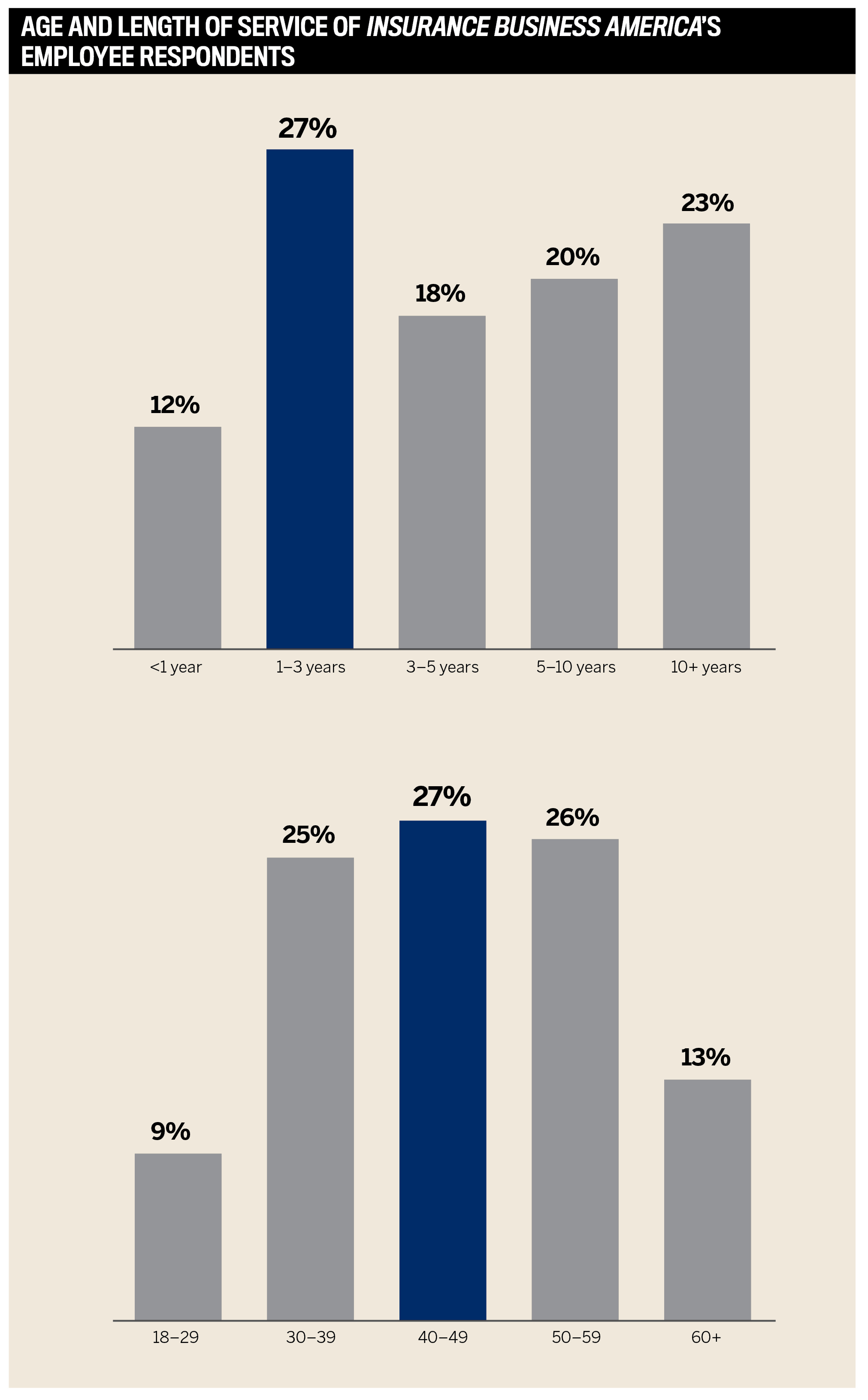
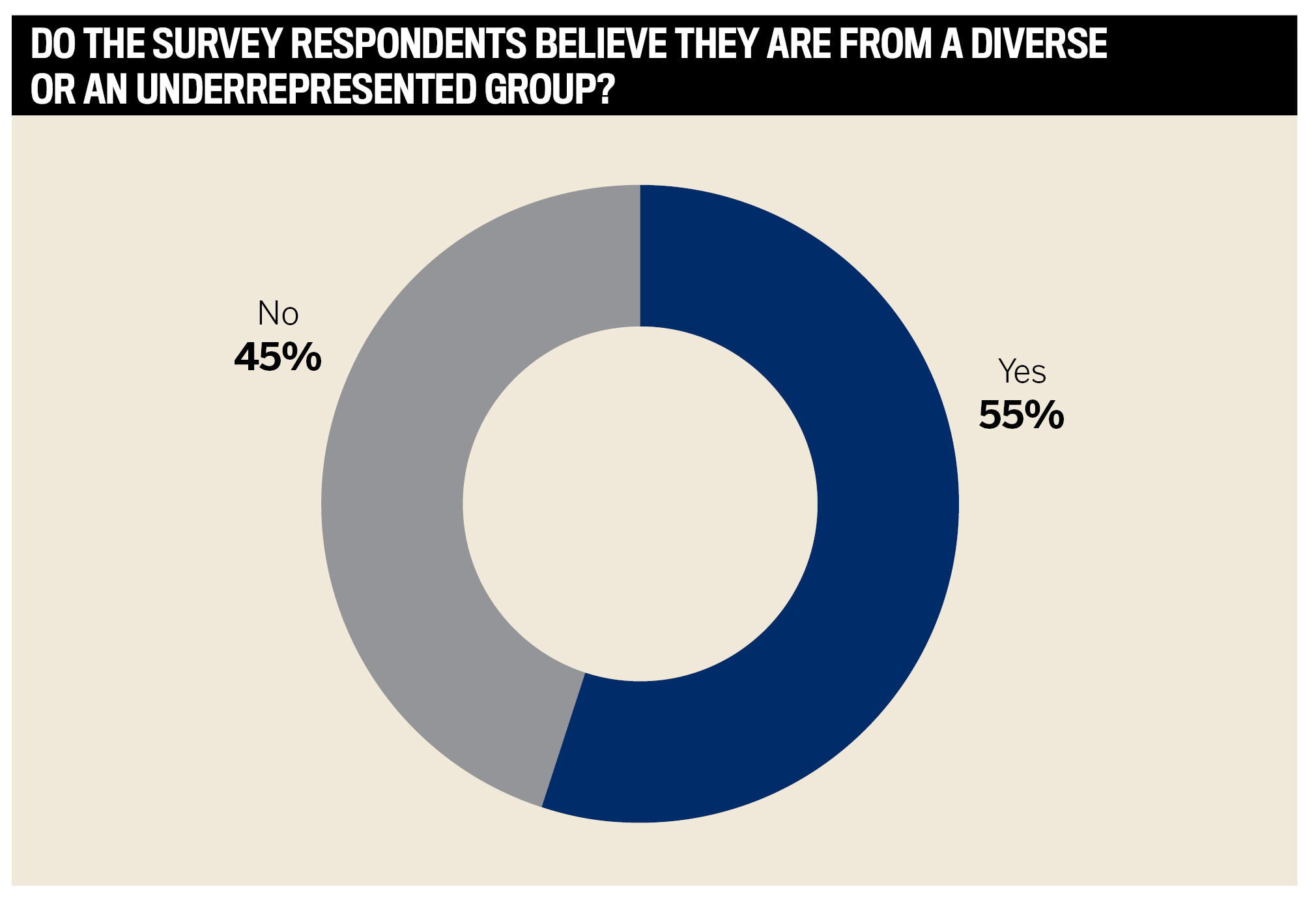
USA insurance companies with the best diversity and inclusion programs
The firm’s steadfast commitment to DE&I is demonstrated by its recognition as a 5-Star awardee for the third consecutive year. “We take a multifaceted, metric-driven approach to promoting it at every level of our organization,” says Hamid.
Alliant Insurance Services has a six-pillar strategy:
accountability
representation
culture
clients
brand development
community investment
Over the past 12 months, Alliant has worked on strengthening its program by introducing new initiatives. The firm launched an employee resource group (ERG), Friends and Faith, to promote religious inclusion.
“It’s something that’s a little bit different for our industry. We have not heard of anyone else – any other large insurance brokerage company – doing this, but we wanted to commit to it since it’s a part of people’s identity that they bring into the workplace,” Hamid says.
Alliant’s other ERGs include:
ARMS (awareness, resources, mentorship, and support for those impacted by cancer)
Mosaic at Alliant (Black professionals)
All-In (LGBTQ+)
AAPI (Asian Americans and Pacific Islanders)
Veterans at Alliant
Latinos at Alliant
Women at Alliant


“What’s even more important than bringing people into the industry is making sure that they stay in the industry, and that we’re developing and engaging them”
Aaisha HamidAlliant Insurance Services
Alliant runs a Culture Catalyst series based around different concepts to create behavioral changes. Over the past year, the series concentrated on allyship within the workplace, with each month’s content building on previous months.
“We focused on building concepts to develop behavior shifts and cultivate a culture of belonging within our organization. On average, 35 percent of people that attend the programs take some kind of action after,” says Hamid.
The firm has allocated over 350 sponsorship opportunities to its employees.
“It’s important to ensure that we are providing our underrepresented professionals with meaningful work opportunities,” adds Hamid. “It was a record number this year, where we provided mentorship opportunities and allowed them to attend conferences that are going to provide them with the skill sets to thrive.”
Part of Alliant’s approach is also to push boundaries based on the company’s observations in belonging science and industrial and organizational (IO) psychology.
Hamid says, “It’s important from the productivity that’s lost, from the sense of how many people will leave the organization if they don’t feel engaged. If you use IO psychology, you know that engagement and belonging are connected. When people feel like they’re engaged and they belong, their engagement score is higher.”
Alliant employees’ feedback to IBA include:
“They have truly embraced and worked on making our company more inclusive.”
“I believe we can all do better always, but I don’t have any specific recommendations. I feel my company offers plenty of opportunities for learning and exposure to cultures and experiences different from my own and fosters an environment of acceptance and belonging.”
“The company has done a great job of being consistent with messaging and provided educational opportunities and platforms for DE&I to thrive.”
Throughout 2024, NFP made strides across its diversity, equity, inclusion and belonging (DEIB) by successfully launching:
a hiring guide to bring more inclusive practices into the candidate experience and process
live workshops for 230 leaders and HR professionals, which will be extended in 2025 to all employees, helping everyone understand how DEIB connects to their role and business goals
In addition, NFP – which has been rewarded with 5-Star status for the fourth consecutive year – grew partnerships to create more meaningful impact by collaborating with 22 organizations to provide 200+ employees with professional and leadership development workshops, and partnered with six organizations to provide speaking opportunities for 30+ employees.

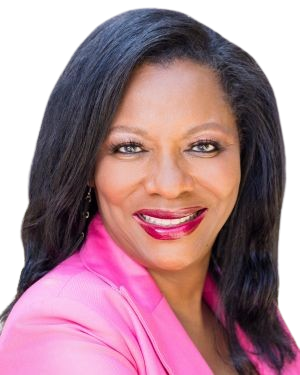
“We actively celebrate and educate our workforce about various religious and cultural holidays to enhance inclusion and belonging. Our responsibility is to create a secure environment and promote respect for the diverse beliefs and experiences of our workforce”
Pamela WheelerNFP
“Our DEIB strategy permeates every aspect of the business and empowers all employees and stakeholders, both internally and externally, to succeed,” says chief diversity and inclusion officer Pamela Wheeler.
NFP employees’ feedback to IBA include:
“I’ve worked at three agencies in my 20-year career in the insurance industry and NFP has the best DEIB program by far. No improvements are needed.”
“My company continues to train, inform, help, and encourage feedback from all employees, and we can make suggestions anytime and we feel heard.”
“The company currently holds regularly scheduled events, which I feel is fantastic. I believe additional documentation/information sheets could help generate awareness for those unable to attend events.”
Empowering all
DE&I is an ongoing initiative that firms cannot become complacent about.
“Speaking as an LGBTQ+ woman, [I find] the workplace a scary place where I’ve been reminded that I’m an outsider. The way that power is shared, decisions are made and unofficial norms and roles that I’m not privy to. It’s a system that wasn’t built for me or a lot of people in mind,” says expert Brown.
“There’s a lot of people suffering in the workplace, not just from poor treatment, but from what’s happening in their lives and stress is impacting them. The boundary between our personal and professional lives has essentially disappeared because of hybrid work.”
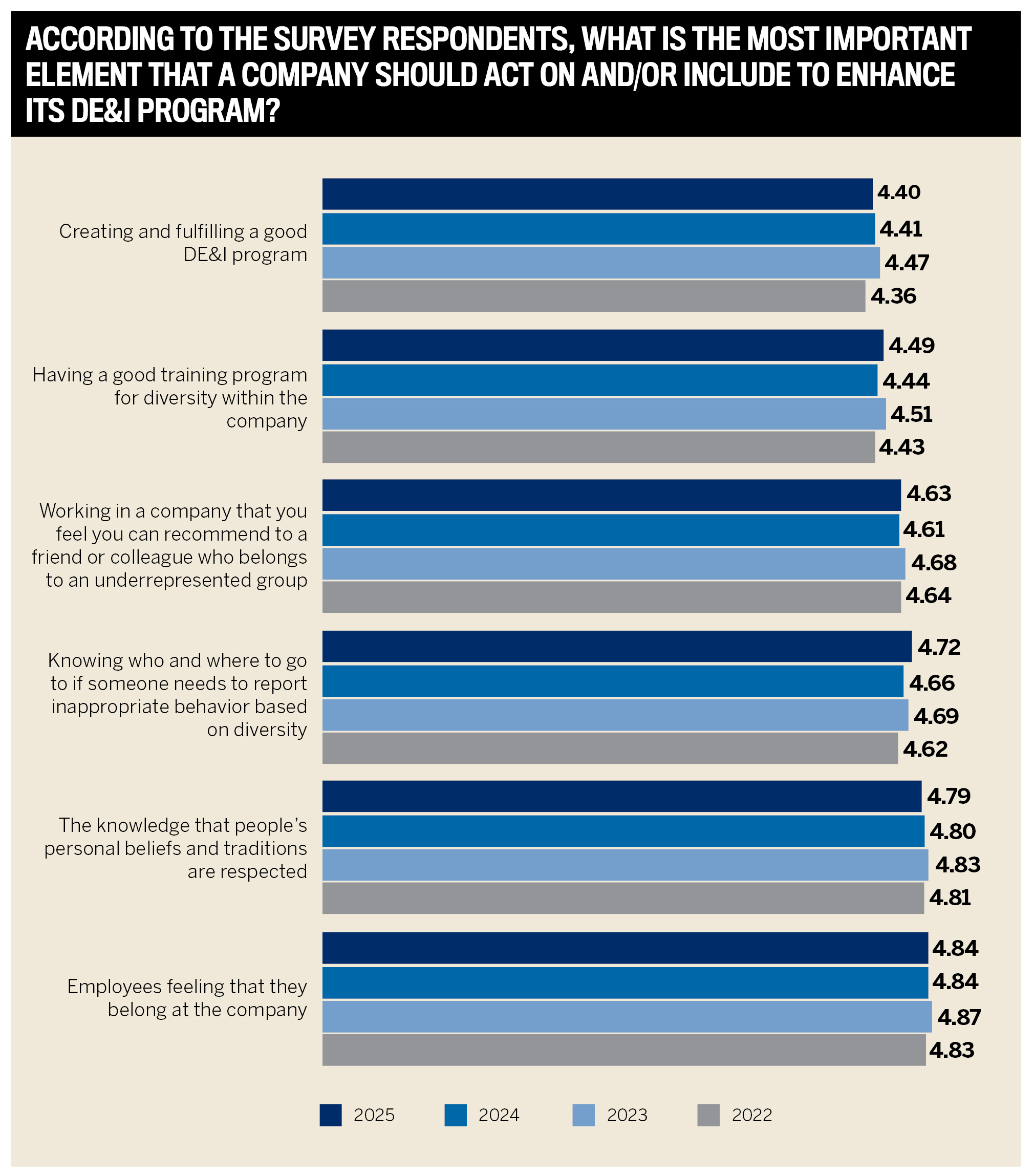
NFP has combatted this issue by promoting a culture where individuals of all levels and backgrounds are supported, as 85 percent of its workforce operates in a hybrid or remote capacity, supporting work-life balance and mental health. The company’s DEIB advisory board consists of members and sponsors of its executive management committee, along with over 25 employees of varied career level, title, gender, ethnicity, age, and multicultural awareness.
Serving on the board for two years, members collaborate, advise, and recommend DE&I policies, procedures, and action plans to leadership that help integrate strategies, initiatives, and best practices which align with and advance NFP’s business objectives and ‘PeopleFirst Experience’.
Wheeler says, “To consistently track our progress and gather employee input on areas of focus, we have incorporated 10 DEIB-specific questions into our annual engagement survey. Furthermore, our advisory board, regional DEIB committees, and business resource groups provide employees with open channels to drive initiatives that matter to them. These groups facilitate direct communication with our team and NFP leadership.”
Two-way communication is part of the system.
“We try to build in feedback loops for all our programs and initiatives. We have surveys that people can respond to anonymously and we also meet with our ERG leaders monthly to get a pulse on what people from different communities within our organization are feeling about the initiatives and the support that we’re providing them,” she says.
NFP also partnered with Disability:IN for a webinar series aimed at raising awareness about the advantages of creating more inclusive workplaces for employees with disabilities.
Their experts identified common barriers to employment for individuals with disabilities and offered guidance on how employers, managers, and colleagues can eliminate these obstacles.
Wheeler says, “We continue to work with Disability:IN and the CEO Commission for disability employment to evaluate our progress and implement actionable steps toward fostering a more inclusive work environment for people of all abilities.”
While at Alliant, Hamid is proud that CEO Greg Zimmer and the C-suite reiterated their commitment to DE&I at the internal leadership conference.
She says, “They praised our retention rate, as we recognize that comes from engagement with DE&I, and we are doubling down on our commitments. We haven’t had pushback from leaders. If anything, we’ve actually been given more support and resources. We’ve grown our team and been encouraged to continue to do the work we’re doing.”
During 2024, Alliant announced a partnership with the Insurance Industry Charitable Foundation (IICF), a nonprofit dedicated to community engagement and philanthropy across the industry. Hamid is part of the IDEA (identity, diversity, equity, and accessibility) council within the IICF.
“We are trying to not just do the work within our organization, but we are also trying to influence it through thought leadership and providing different ideas across the entire insurance industry,” she explains.
The firm is also cognizant of psychological safety and ensuring their team members feel safe to voice concerns. Alliant has built its feedback loops for all programs and initiatives.
Hamid adds, “We have surveys that people can respond to anonymously. We also meet with our ERG leaders monthly to get a pulse on what different communities within our organization are feeling about the initiatives and the support that we’re providing them.”
Giving back
To attract those from minority groups into insurance, Alliant has partnered with community organizations.
“We want to make sure that we’re getting the word out to all professionals. We have a partnership with the National African American Insurance Association (NAAIA), and we try to make sure that we have partnerships with all the affinity organizations in the insurance industry, so that we are very targeted,” Hamid says.
Through its external organization, Alliant Insurance Foundation, the company mitigates the barriers and provides access into the insurance industry.
Alliant also has a two-pronged Fellows and Scholars program.
Fellows – undergraduates who participate in internship programs while receiving a competitive wage and living expenses
Scholars – postgraduates who complete specialized insurance certifications with fully covered tuition
“We do it both internally and then also through our foundation as well,” says Hamid.
That work is evident as the company’s senior management has reached 33 percent and represents underrepresented professionals (in relation to gender and race/ethnicity).
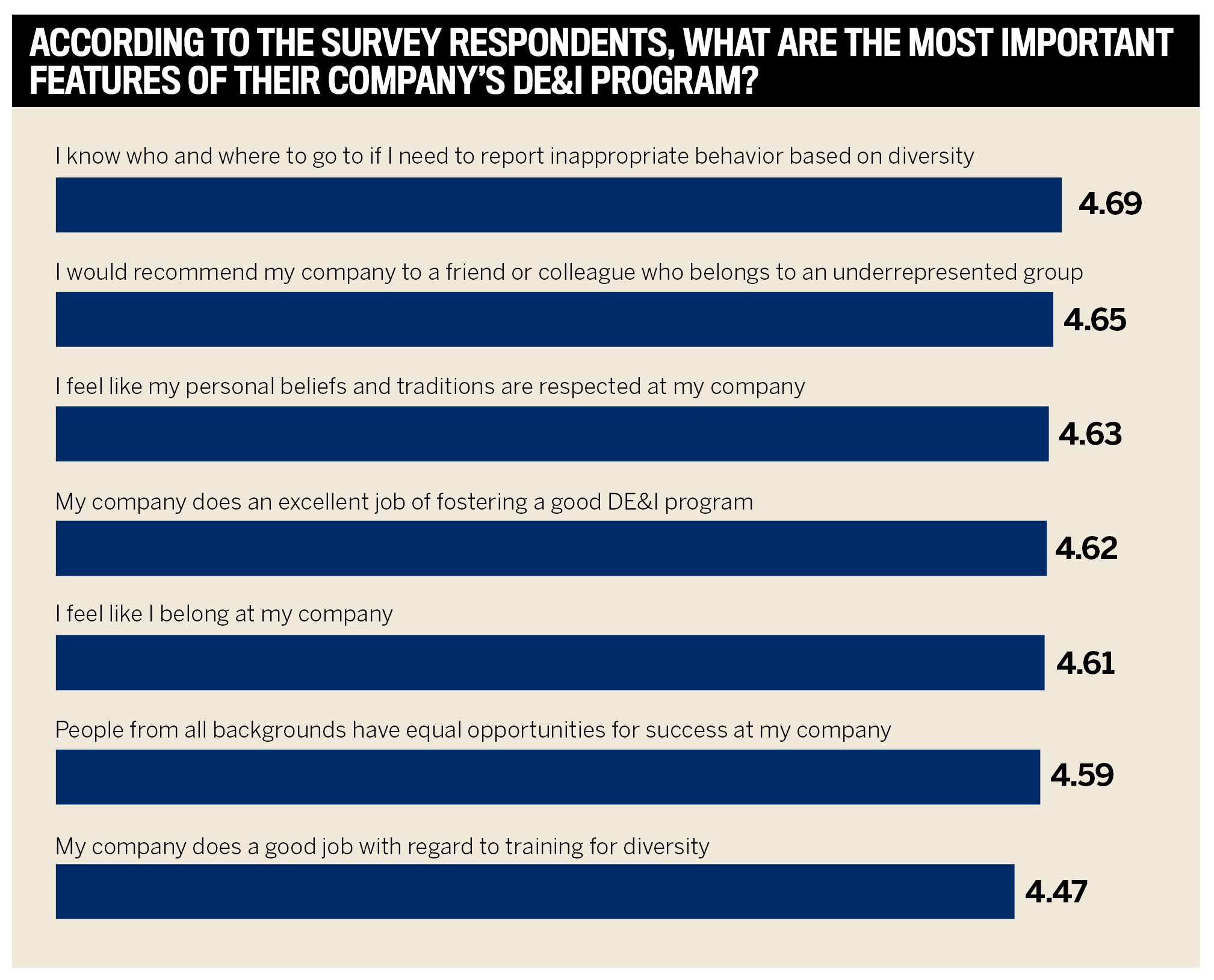
NFP has established relationships with community and industry groups that serve underrepresented populations to drive progress in the community, including:
GenHERation
NAAIA
The American College Center of Economic Empowerment and Equality
Disability:IN
Association of Latino Professionals for America
National Association of Asian American Professionals
“These external partnerships also help us attract new and diverse talent and provide equal opportunities and resources for employees of all backgrounds to succeed and advance their careers,” says Wheeler. “We are committed to working with industry partners to advance DEIB in the insurance sector.”
She continues, “We regularly assess our current relationships and seek additional partnerships. Our Business Resource Groups play a key role in helping us identify groups that align with our values while we work internally to develop more formal processes with leadership and our recruiting and talent management team to support these efforts.”
Future-focused initiatives
Both of the 5-Star DE&I winners refuse to rest on their laurels. Over the 12 months ahead, they have set targets to continue advancing their efforts.
For Alliant, this includes being certified to internationally recognized standards. Hamid says, “We’re hoping to ensure that our DE&I strategy for the next three years is ISO 30415 compliant, so that it’s being benchmarked across industry standards.”
And she continues, “The second piece is making sure that we’re taking a change management approach as we believe it is the best way to get big change within the organization. For our larger initiatives that we’ve already piloted, we’re hoping to scale them, so we’re really focusing on quality numbers and making sure that everything is compliant.”
For NFP, there are similar desires to keep pushing the envelope. “We’ve made progress but still have much to do,” explains Wheeler. “Our aim is to embed DEIB in all areas and empower everyone through it. We are expanding our supplier diversity program and improving how we measure success and impact.”
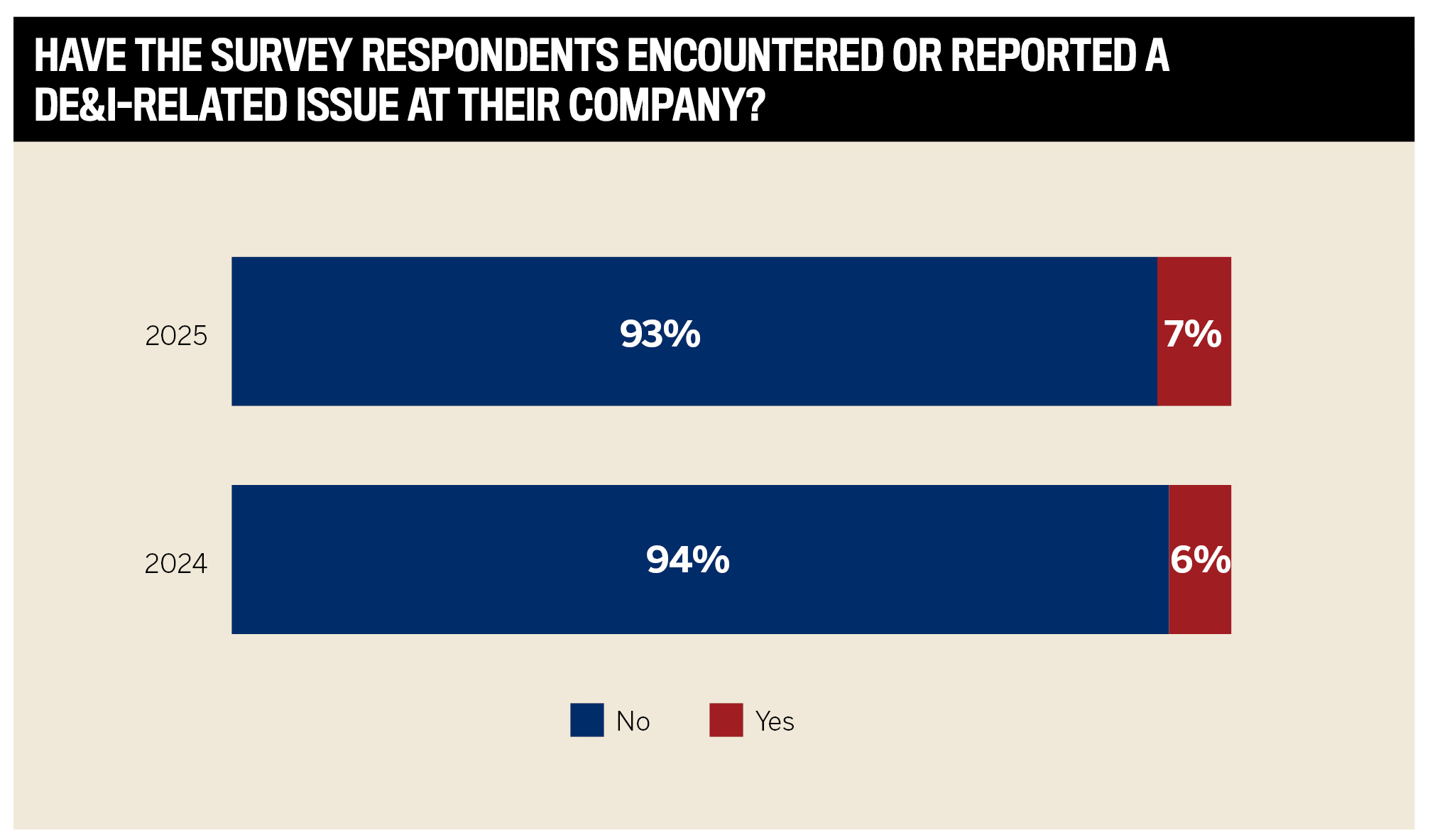
10,000+ employees
AssuredPartners
HUB International – Chicago, IL
USI Insurance Services
2,500–9,999 employees
500–2,499 employees
Duck Creek Technologies
Newfront
1–99 employees
Athena Actuarial Consulting
Euclid Transactional





